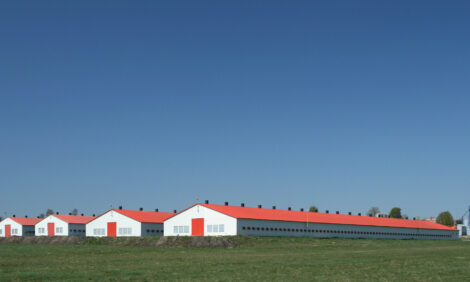



Report: Unsustainable Livestock 'Eating our Future'
US - Current trends of industrial animal production have been branded as unsustainable in a new report released by an animal welfare association.As Americans prepare to celebrate the annual harvest festival that is Thanksgiving, the World Society for the Protection of Animals (WSPA) today released "Eating our Future: The environmental impact of industrial animal agriculture."
The report details how current agricultural practices in the U.S. and elsewhere contribute to the environmental, economic and social crises faced by developed and developing countries alike, and makes a call for shifting to humane and sustainable models of production.
* "The hidden cost of factory farms is far greater than the planet can afford" |
|
Dr. Michael Appleby, author of the report.
|
In 2006, Livestock's Long Shadow, a report published by the United Nations Food and Agriculture Organization (FAO) noted that, at current rates of increase, meat and milk production will more than double by 2050. Eating our Future examines the impact of this growth, and highlights the urgent need to challenge and restrain the expansion of that production and reverse it as soon as possible.
"Current trends in animal production are literally unsustainable. The hidden cost of factory farms is far greater than the planet can afford," says Dr. Michael Appleby, author of the report. "Apart from the needless suffering imposed on billions of factory farmed animals, industrial animal agriculture also makes a major contribution to climate change, to the scarcity of resources and instability of markets, and to other global problems such as poverty and disease. Because of the increasing numbers we keep, the resources we use for them and their impact on the environment, farm animals are eating our future."
In his foreword to Eating our Future, Dr. R. K. Pachauri, Chairman of the Intergovernmental Panel on Climate Change, suggests two ways to arrest the trend of increasing meat consumption, "Firstly to create adequate awareness among the public on the benefits of lower meat consumption and secondly to place a price on carbon, which would then be added to the cost of meat and thereby create a market response in the form of lower consumption at higher prices."
With this report, WSPA is calling on intergovernmental organizations such as the United Nations, national governments and food supply industries (agricultural and retail) to take several actions, including developing policies for a sustainable food supply and including animal welfare in all future discussions on agriculture and climate change.
Further Reading
| - | View the report: "Eating our Future: The environmental impact of industrial animal agriculture" by clicking here. |








